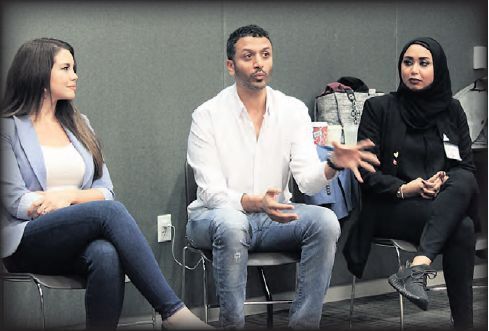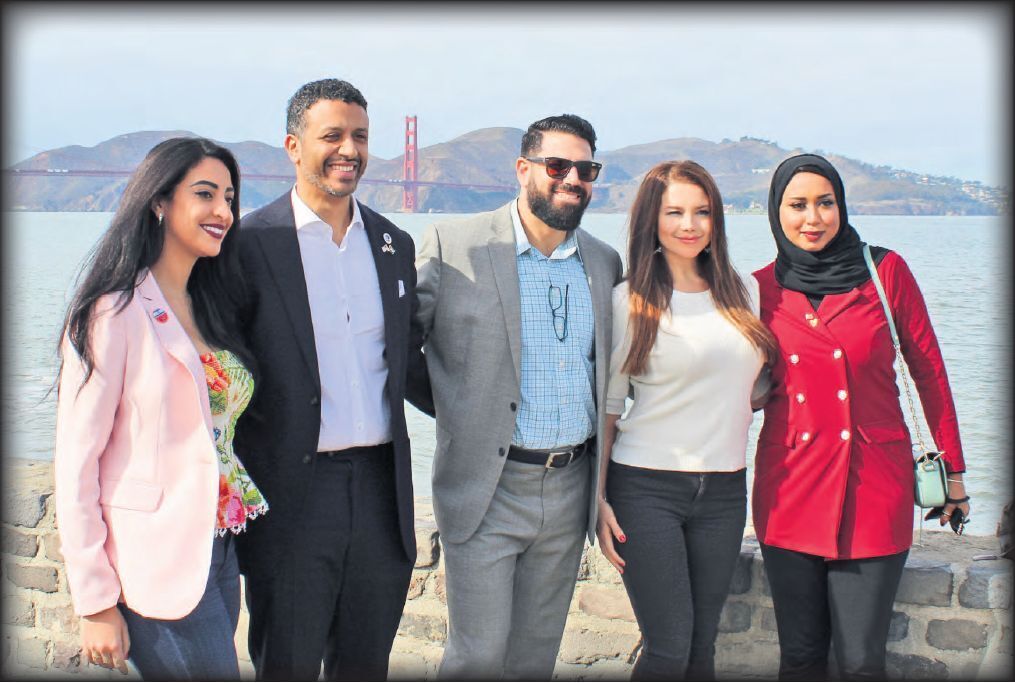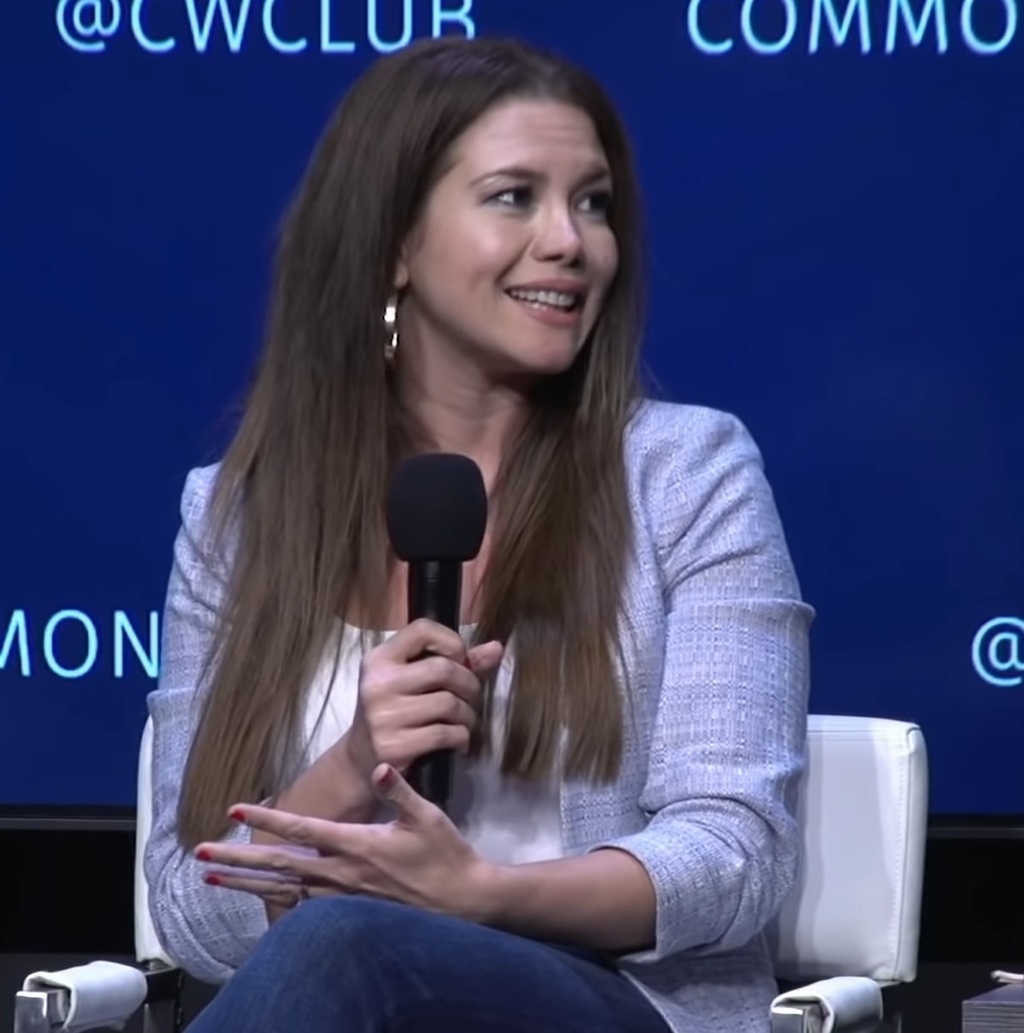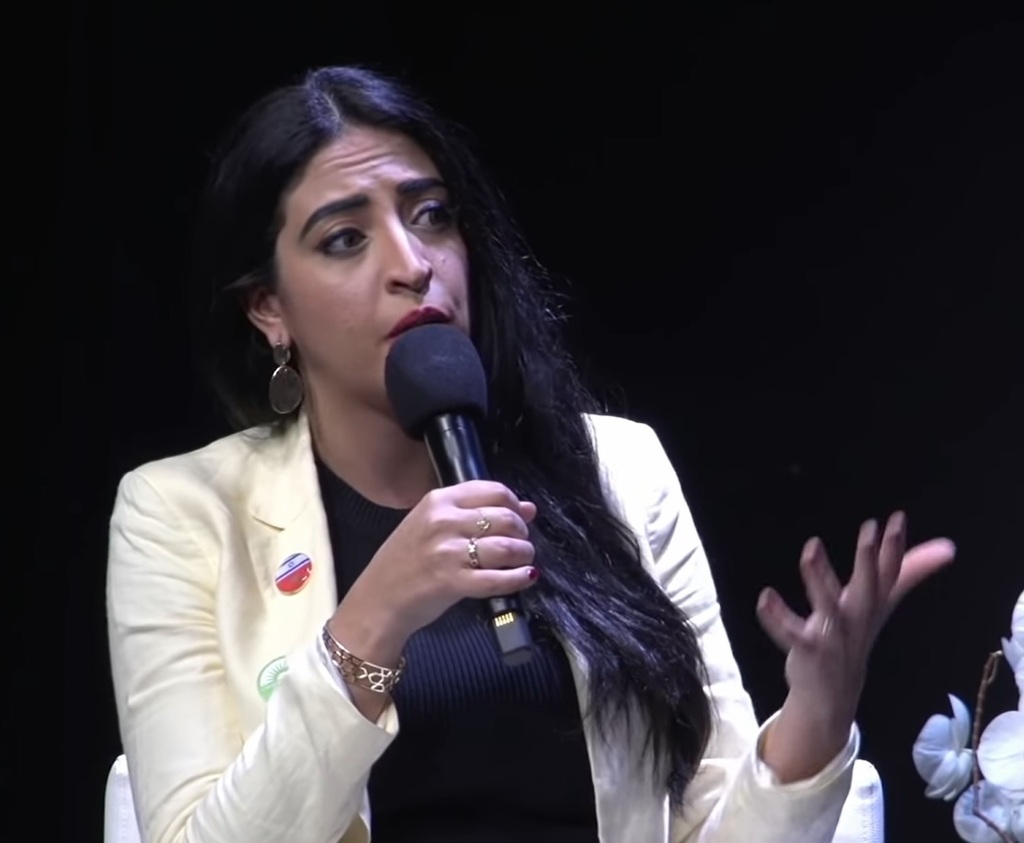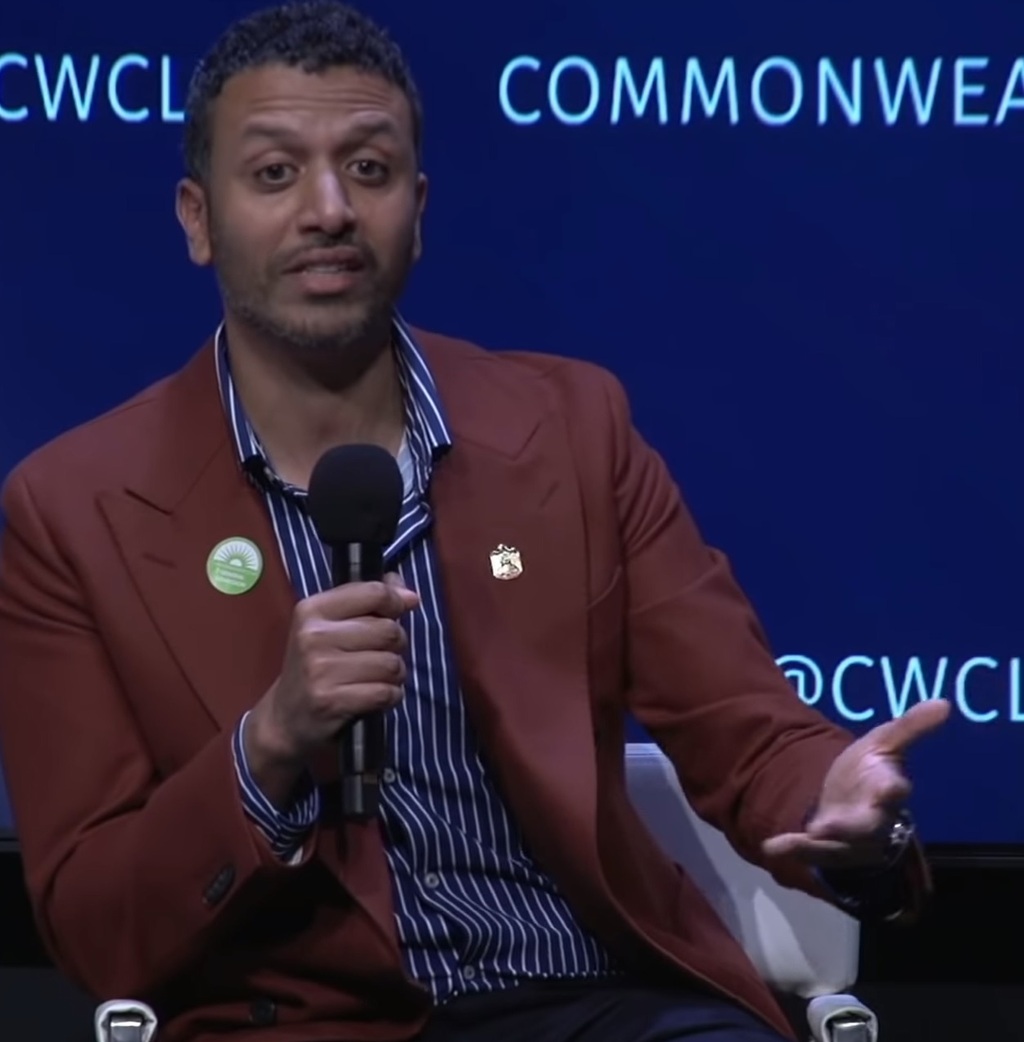"I heard a lot of terrible things about Israel," said 30-year-old Fatima El-Harabi, an author from Bahrain. "I thought Arabs lived in it under oppression, that war there never stops. But then the Abraham Accords were signed and the atmosphere started to change. A connection with Israelis was established through social networks, and I received an invitation to visit Israel," she continued.
"I decided to set aside my hesitation and see Israel with my own eyes. So, I traveled, I met Jews, I met Arabs, I also met Palestinians, and I was amazed.
"None of what I had been told was true," said El-Harabi, who is originally from Saudi Arabia and has already published five books.
"There are people who look just like me, there's no sense of war there, the streets are teeming with restaurants and beaches, and I even met people who became my friends. However, when I got home to Bahrain, there were some harsh reactions, they said I was a traitor, but many others were just curious. People wanted to know about Israel so, I joined 'Sharaka' (The Gulf-Israel Center for Social Entrepreneurship) and traveled to Israel for a second visit."
This what the author said last week on the prestigious stage of the Commonwealth Club of California in San Francisco, the oldest public affairs forum in America, which has hosted the most prominent public figures, including presidents. The audience there was mostly liberal, maybe even progressive, but contrary to what usually happens in pro-Israel events, they did not interrupt anyone this time. Instead, they listened.
"She kind of confused me," a woman who heard El-Harabi talk, said to me, "that's not how I thought about Israel."
Among the speakers were also Chama Mechtalty, a multi-disciplinary artist from Morocco; Hayvi Bouzo, a journalist who grew up in Damascus to a mixed family - Syrian, Kurdish and Turkish; Omar Al Busaidi from Dubai; Lorna El Khatib, Israeli-Arab-Druze, and Dan Feferman who made Aliyah to Israel from the United States.
They were all there to present to American Jewish and non-Jewish audiences the benefits of the Abraham Accords. They held three meetings a day across the San Francisco Bay area: in Jewish communities, on campuses and even in private homes.
Needless to say, San Francisco Bay area is probably the most anti-Israel place on U.S. soil. During the Gaza war in May, known as Operation Guardian of the Walls, an Israeli diplomat told me that anti-Israel demonstrations were taking place on every corner, but a young delegation composed mostly of Arabs were able to sow some doubts in the hearts of U.S. progressives.
It could have been due to the fact that the speakers conveyed a message about Jews and Arabs refusing to be enemies instead of another cliché slogan about Israel being the oppressor.
In one of the delegation's meeting at a synagogue, one member of the audience asked: "How can you present the Abraham Accords in a positive light, when it was achieved by a dictator like Benjamin Netanyahu?" The Syrian member of the delegation replied: "I lived long enough under a dictatorship, my family is still suffering in Aleppo and Damascus, and I can't even be in touch with them because it might put them in danger. You don't have to like Netanyahu, but even leaders that you dislike can do great things, and peace between Arab countries and Israel is a great thing."
After her response, the member of the audience who asked the question almost disappeared into his chair since he didn't expect such an answer from a Syrian journalist.
Chama Mechtalty spoke to the audience in the language of art. She said she grew up in Casablanca and is of of Amazigh origin. When she got older, she found out her grandfather from her father's side is a Jew who converted to Islam. "I live with a lot of identities," she said. "Spiritually, I also feel Jewish, and my art is based on many cultures of Morocco and the region, from both mosques and synagogues.
"When I was looking for a university in the United States, I actually felt connected to Brandeis University, which is identified as a 'Jewish university', and I felt at home there," she said.
Mechtalty also mentioned she promotes peace through her art and indeed, in her jewelry collections you can find the Star of David.
The Palestinian issue was mentioned in every meeting, and always from the same point of view: it's very nice what you are trying to do, but you neglect the Palestinian cause - because apparently it is the main problem of the Middle East.
The delegation members made it clear they are not committed to any political position. The member from Dubai said as far as the United Arab Emirates is concerned, by signing a normalization deal with Israel, the Gulf state "didn't abandon the Palestinians, and we want the peace agreements to include them as well".
"We are still helping them, despite their hostility, but we can't remain their hostages. If the Palestinians are having trouble in making peace, we are supposed to just continue with the old ways of boycotts and hate? We've tried it, it didn't work. So now we want to show them that peace with Israel is good for everyone."
Dan Feferman, a research fellow at the "Jewish People Policy Institue" presented the Israeli position with considerable talent and with a profound knowledge of American politics. While Lorna El Khatib, who identifies as Arab, Israeli, and Druze, said "the Abraham Accords gave Israeli Arabs access to the Arab world. And while Israel is not a perfect country, it's a lie to say it's an apartheid one."
The Middle East is now split into two groups. On the one hand, there is the group that includes Iran, Hezbollah, Hamas, the followers of jihad, and all those who hate Israel. On the other, there is a new, rising community of Jews and Arabs who support peace through mutual respect, while seeking to end hostilities, with common interests that can help anyone who chooses the path of peace.
Ironically, the first group, the one that keeps insisting on boycotts and hatred, consists of many progressives who support BDS, traveling from campus to campus, spreading the lie that Israel is an apartheid state that commits war crimes. So which group do you prefer? The one that promotes normalization and peace or the one that promotes demonization and hatred? This question was asked during one of the meetings, causing embarrassment among the progressives.
It's usually the pro-Israelis who feel uncomfortable in these forums. But a Jewish-Arab group, especially Arabic, made some sort of change this time.
The progressives who met with the delegation heard things that made their skin crawl and that's great. When the founder of Sharaka, Amit Deri, asked me to join the delegation, he said they found a better way to fight demonization. "Arabs and Jews who speak different languages. Not against Israel, or against Palestinians, but for peace, for normalization."
The number of Sharaka members in the Arab countries is only growing, there are already branches in Dubai, Bahrain, Morocco, and there are also supporters who join the virtual activity from other countries as well. There are also those who oppose this idea, and the more it grows, the more people will oppose it.
Sacramento, California's capital, is not known for its sympathy towards Israel. Even its Jewish mayor, Darrell Steinberg, had previously expressed very hostile views toward Israel. "I don't recognize the Israel I love," he wrote during Operation Guardian of the Walls. And yet, he came to the meeting with the Sharaka delegation.
I saw him sitting in his chair, looking surprised by what he was hearing. He was joined by an Egyptian businessman, Kais Menoufy. I spoke with both of them after the event, they were both enthusiastic. Menoufy was among the first Egyptian officers to cross the Suez Canal during the Yom Kippur War in 1973, he also captured the first Israeli prisoner, and for his part in the war he received one of the highest medals of honor in Egypt. "I liked the message," he said to me after he heard the speakers, and invited them all to the most prestigious restaurant in Sacramento.
6 View gallery
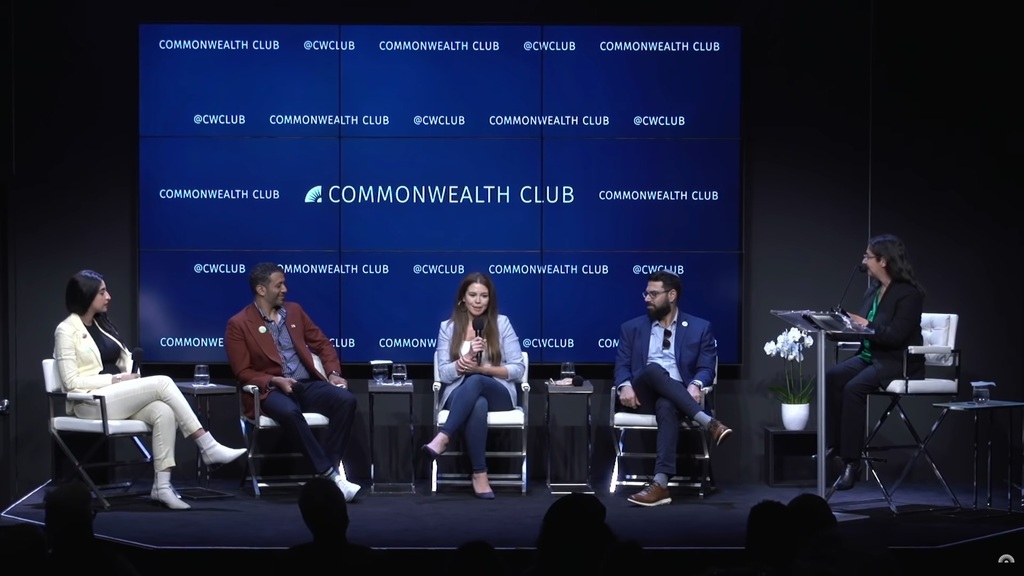

The delegation at the Commonwealth Club of California event
(Photo: Screenshot from YouTube)
"I want to help and contribute," he said. He also came to another meeting, held at Gina and Daniel Waldman's house, to continue the dialog. Gina founded the "Jimena" organization, which deals with the heritage, culture, and history of Arab Jews, a less familiar chapter for American Jews.
As Shabbat arrived, the visit came to an end. The delegation was staying at Palo Alto, at the home of Rabbi Serena Eisenberg and her Israeli husband Dr. Yaron Zimler. The Arab members of the delegation sang "Shalom Aleichem" with us, which is a traditional Jewish poem commonly sung at the beginning of a Shabbat meal, and means "peace be upon you".
Some of the words were similar to Arabic greeting "salam alaikum," so they wanted to know more about the song. They were told that there is no more appropriate song for this delegation and for this evening, since this song is about the angels of peace, and they are truly angels of peace.
The Arab members were touched, and there was a moment of silence, in which I even noticed some tears, and perhaps, the start of a brand new era in Arab-Israeli ties.


